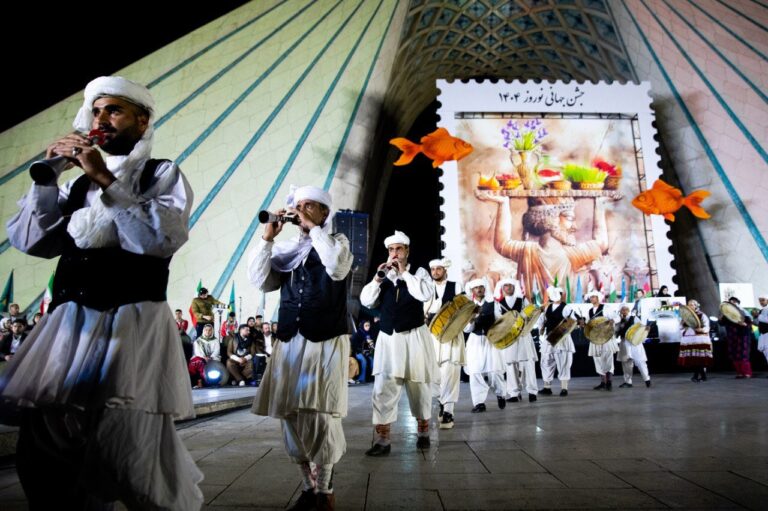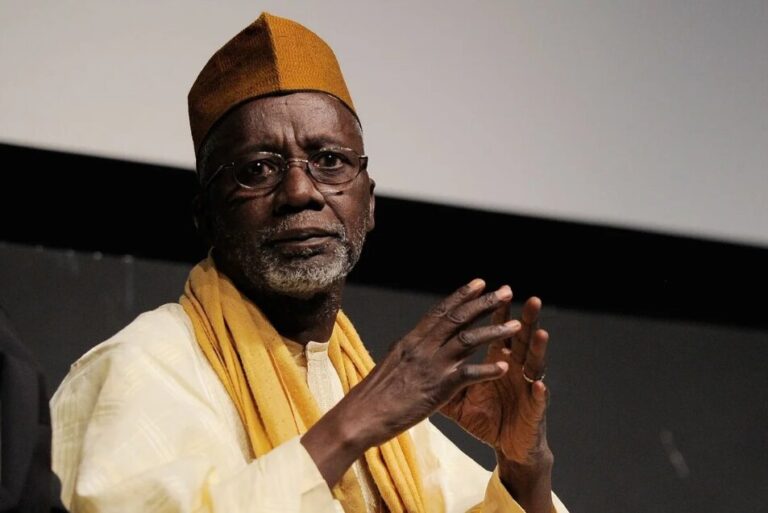Tehran Celebrates Renowned Armenian Author: A Gathering of Cultural Icons Honors Literary Excellence
The unveiling of the Persian translation of “The Great Silence” (“Mec Irutyune” in Armenian) by the esteemed Armenian author Perch Zeytuntsyan took place at Tehran’s City Theater Complex. This event highlighted the significance of cultural exchange and the enduring ties between Iran and Armenia.
The book unveiling ceremony was hosted in the Mashahir Hall of the complex, attended by notable Iranian playwrights, dramatists, and theater directors. The Persian translation was crafted by the distinguished Iranian translator Andranik Khechumian and has recently been published by Ayas Publications in Tehran.
During the ceremony, Qotbeddin Sadeqi, a renowned playwright, scholar, and theater director, provided an insightful analysis of the three plays included in the book. He emphasized the theme of identity reflected in Zeytuntsyan’s works, praising him as a playwright deeply aware of his nation’s history.
Next, the esteemed composer and conductor Maestro Loris Tjeknavorian spoke about the historical connections between Iran and Armenia. He highlighted the long-standing friendship between the two nations, which is rooted in their shared cultural heritage.
Additionally, Andranik Simonyan, a linguistic scholar and researcher, addressed the emergence of Pan-Turkism in his remarks. He effectively underscored the documentation of the Armenian genocide as presented in Zeytuntsyan’s plays.
Mahmoud Reza Rahimi, a university professor and Iranian director, stressed the importance of depicting historical events in theatrical works. He elaborated on the necessity of this practice, acknowledging Zeytuntsyan’s significant contributions in this area.
- Speakers praised Khechumian’s fluid and engaging translation.
- Andranik Simonyan also composed poetry for the play in Persian.
- The session was moderated by Javad Atefeh, a fellow playwright and theater director.
Andranik Khechumian expressed his gratitude to all attendees for their presence and support. Zeytuntsyan, who passed away in 2017, is celebrated for his vast contributions to Armenian literature and culture.
Perch Zeytuntsyan (1938–2017) was a prominent figure in Armenian literature, having studied at the Aghayan School in Yerevan. His literary career began with the publication of his first short story, “Nvere” (The Gift), in 1953. Zeytuntsyan’s early works, including the acclaimed collection “Nra arajin enkere” (His First Companion), established him as a significant literary voice in Armenia.
Throughout his illustrious career, Zeytuntsyan authored numerous novels and novellas, many of which have been translated into various languages, including Russian, Czech, Bulgarian, Hungarian, and Baltic languages. His theatrical journey commenced with the 1974 tragedy-comedy “Amenatkhur marde” (The Saddest Man), and he went on to write ten plays, such as “The Legend of the Ruined City” and “The Great Silence.” His works often delve into themes of Armenian history, identity, and the complexities of authority.
A recurring theme in Zeytuntsyan’s body of work is the Armenian genocide, reflecting the rising nationalism during the late Soviet period. His films and screenplays, particularly “Chronicle of Yerevan Days,” further demonstrated his versatility and creativity. Zeytuntsyan served as Armenia’s Minister of Culture from 1990 to 1991, leaving a lasting impact on the cultural landscape of the nation and earning numerous accolades, including the State Prize of Armenia.
The Armenian Genocide, a pivotal historical event, involved the systematic extermination of Armenians by the Ottoman Empire during World War I, primarily between 1915 and 1917. An estimated 1.5 million Armenians were killed through horrific means, including mass shootings, forced deportations, starvation, and brutal violence. The Ottoman government sought to eliminate the Armenian population, falsely accusing them of aiding the Russian enemy and portraying them as a threat to the empire’s stability. This tragic event resulted in the forced removal of Armenians from their ancestral homeland, with many perishing during perilous marches through the Syrian desert. This genocide is widely recognized as one of the first modern genocides.
The unveiling of “The Great Silence” serves as a poignant reminder of the importance of cultural dialogue and the shared histories that unite nations. The event not only celebrated Zeytuntsyan’s work but also fostered a deeper understanding of the historical narratives that shape the identities of both Armenians and Iranians.
Photo: Iranian translator Andranik Khechumian speaks at the unveiling ceremony of the Persian translation of the book “The Great Silence” at Tehran’s City Theater Complex on May 21, 2025.





